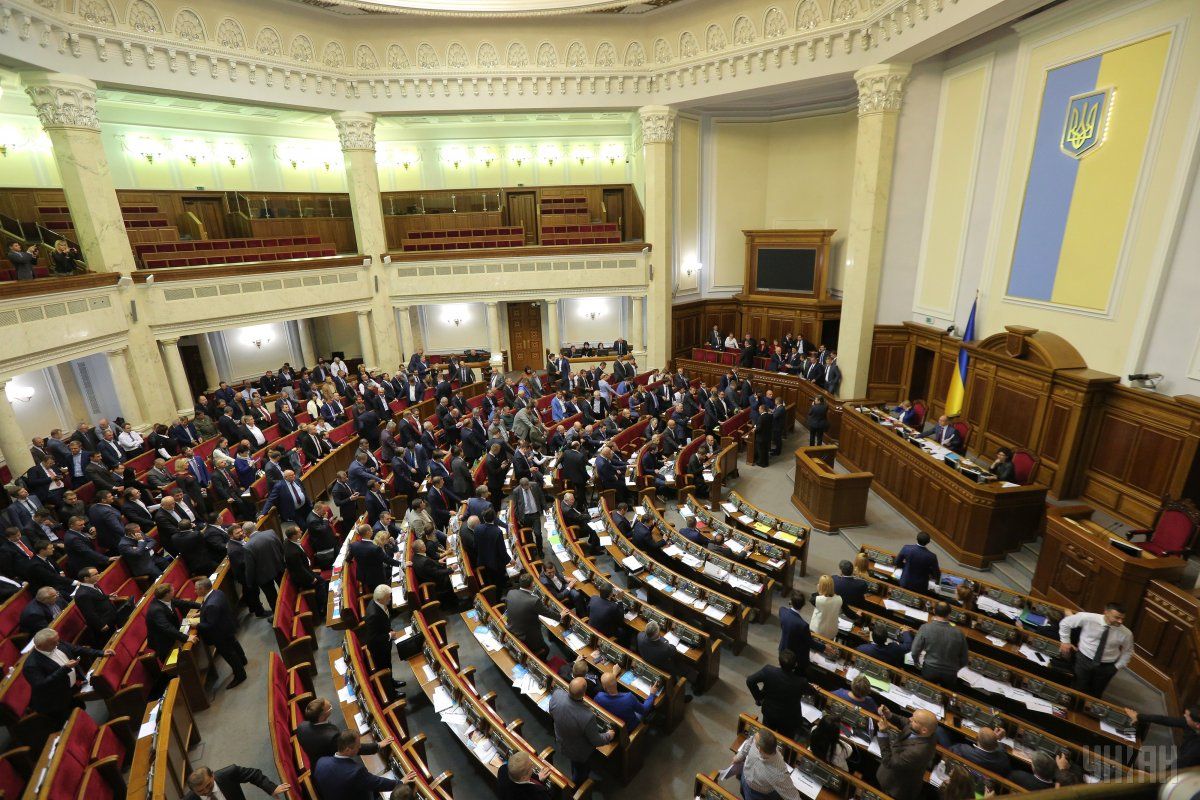
Some 312 lawmakers supported the document, he reported.
Prior to the voting, Ukrainian Prime Minister Volodymyr Groysman had come in the session hall to urge the MPs to support the bill.
Speaking from parliament's rostrum, the official stressed that he respects law enforcement officers involved in fighting crime. However, he "despises those security officials who wear law enforcement insignia and use every opportunity to put pressure on fair and transparent businesses, raid their offices wearing masks, block and take away their PCs and primary documentation, thus blocking those who are creating the national product today."
Read alsoAvakov's son on charges against him: "Biased political case"The prime minister also noted that he had held a meeting with business envoys who supported the adoption of this draft law, which would prevent "humiliation of entrepreneurs" and blocking of their work.
Ukrainian Justice Minister Pavlo Petrenko said in turn that almost 100,000 raids had already been conducted in 2017. Therefore, it is urgent to pass the bill since the businesses and Ukrainian citizens need it "even as of yesterday."
In particular, the draft law introduces mandatory video recording of search operations, as well as examination of applications by the investigating judge, except for conducting secret investigative (search) actions. Thus, the video recording provided by the investigator or the prosecutor should be part of a search protocol. Moreover, the defense has the right to independently carry out a video recording of a raid. At the same time, such persons are notified about their obligation not to disclose details of the pre-trial investigation without written permission issued by the investigator or the prosecutor, as well as about the responsibility for disclosure of such information.
Read alsoNABU chief facing criminal liability for disclosure of investigation detailsIn addition, amendments to Article 236 of the Criminal Procedure Code provide for the right of a person whose home or other property is being raided to seek legal assistance by a lawyer at any stage of the search.
According to the draft law, Articles 160, 164, and 165 of the Criminal Procedure Code say that the prosecution should justify the need to seize the original documents or their copies in order to protect participants in criminal proceedings from unjustified confiscation of documents and computer hardware. Furthermore, Article 168 of the Code prohibits the seizure of electronic information systems and obliges the prosecution to make copies of needed data with the involvement of a specialist without removing hardware. The bill stipulates that properly made copies of such information are equal to the original data in evidentiary force, which will also protect the interests of business entities that suffer from blocking their work due to unjustified confiscation of computer and server equipment amid criminal proceedings.
The document grants an applicant the right to receive an extract from the state register of pre-trial investigations on his/her written request or a notice about a criminal offense. In addition, it obliges the investigator or the prosecutor to provide this extract within 24 hours after information about a criminal offense is included in the register. This will allow applicants to promptly receive confirmation at their request or following reports on criminal offenses that a pre-trial investigation has been launched. They will also be able to appeal against inaction of the investigator or the prosecutor who do not enter information about a criminal offense to the register in the manner prescribed by law.
The draft law specifies that a person, in respect of whom (including his or her property) investigative action is being carried out and who is not a party to criminal proceedings, has the right to file a motion for legal proceedings within a reasonable period of time and, in particular, to appeal the violation of such terms.
The document also extends the list of grounds for closing criminal proceedings. In particular, they are considered closed if a resolution issued by the investigator or the prosecutor to terminate the criminal action has not been rescinded.
What is more, the bill provides a person whose dwelling or property is being searched and video recording is used, with additional safeguards against disclosure of information about his or her personal and family life, or circumstances that humiliate his or her dignity. In order to prepare for the trial, the court shall examine motions filed by participants in the legal proceedings in a closed court session.

